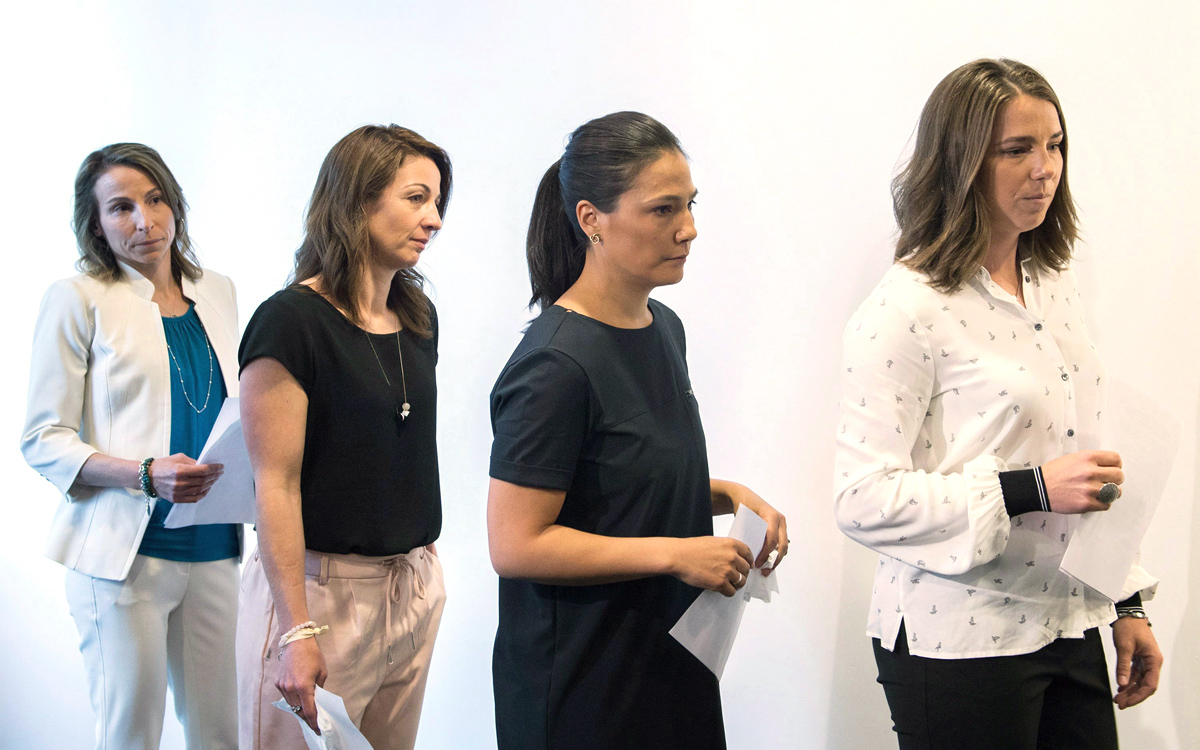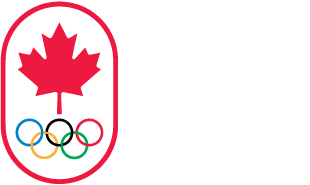6 WAYS TO CREATE POSITIVE CHANGE
We’ve got some more work to do.
It’s hard to admit and sometimes hard to see, but it’s clear we have more work to do when our government has to remind us that: “All Canadians deserve to participate and compete in a sport environment, free from harassment, abuse or discrimination …”
In a country which prides itself in leading by example, and especially following the important progress we’ve already made, this is a tough reminder. But, when something isn’t right in our sport family, we work to make it better — together. It’s our responsibility, and it takes guts. Just ask Amélie-Frédérique Gagnon, Gail Kelly, Anna Prchal and Geneviève Simard.
Last month these four retired skiers lifted a publication ban on their identities during their trial against their former ski coach, Bertrand Charest for sexual assault and sexual exploitation. These women — our teammates — shared a vivid and horrific snapshot of the very environment we work in every single day.
It’s critical we learn from their courage. So, following that news story, Tricia Smith, president of the COC, voiced her opinion in the Toronto Star on the very subject; sharing publicly the demand for change in our sport family. Indeed, more has to be done.

Victims of Bertrand Charest, from left, Amelie-Frederique Gagnon, Gail Kelly, Anna Prchal and Genevieve Simard arrive for a news conference in Montreal, Monday, June 4, 2018. THE CANADIAN PRESS/Graham Hughes
So, what can we do about it?
1. Acknowledge more work is needed
Maybe it’s not in your peripheral. Maybe it’s not visible in your day-to-day. But as members of the high-performance sport family in Canada we have to acknowledge the work needed to fix something that isn’t right, no matter which organization we belong to. Proof has surfaced of what needs to be fixed, and things won’t change unless we first recognize the work ahead of us.
2. Commit to action
Team Canada is strong because it is united. Since together we are its leaders, it’s our job to place even the heaviest issues directly on our shoulders; to set the example we need to create a more successful future for athletes in this country.
3. Normalize the discussion
This conversation is going to get harder before it gets easier. As high-performers we are used to difficult conversations — and this needs to be one of them. We can make that happen now. The Coaching Association of Canada has put together the responsible Coaching Movement which has 3 steps. The COC’s policy, code of conduct and whistleblowing policy is also public document for each of us to understand. The topic of abuse and harassment needs a safe and open context in our sport system
4. Embrace the new landscape
New guidelines are in development to create a safer environment for athletes and staff. The coaching Association of Canada has done great work in this space. And the IOC has a toolkit in place. This is the direction our sport system is going. It’s up to us to make use of these important tools.
5. Evaluate your culture
Can athletes and staff speak with confidence in any situation to any member of your team? Is there a sense of comfort everywhere to defend, debate and challenge things that don’t seem right? Does everyone feel the same way? Our culture is defined by our values. If we are going to live and work by the values of the Canadian sport system, we must fully understand them in relation to our day-to-day.
6. Hold each other accountable
As a team, this is what we do. In training. In performance. Now it’s time to do the same in our actions toward building a safer sport environment in Canada. By checking in, talking and listening (especially listening) to each other across the entire sport spectrum we can be sure to hold each other accountable to our intentions.
***
Among the beautiful things about high-performance sport in Canada is that we get the chance to leave something behind. We create legacy as individuals. Right now each of us has the opportunity to be the specific reason sport in Canada is a safer place for athletes to thrive inclusively. Seizing this opportunity is not a choice. It’s who we are as a team.


Got something to say?